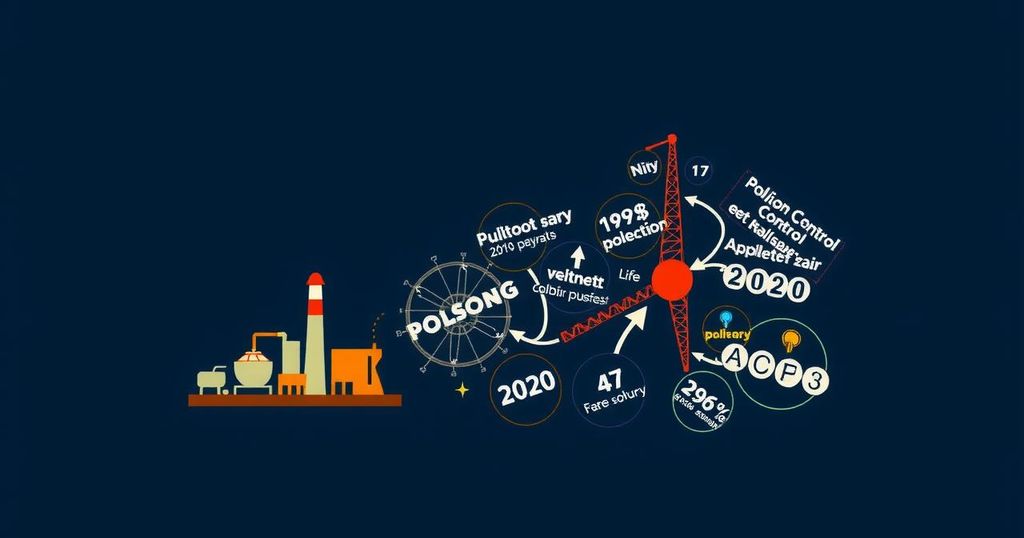COP29 in November 2024 is positioned to enforce the “polluter pays” principle, holding corporations and countries accountable for greenhouse gas emissions. Despite historical acceptance, this principle has not been effectively implemented, allowing major polluters to evade financial responsibilities. Immediate action is essential to address dire climate impacts, especially on vulnerable countries like those in Africa. Recommended measures include taxation on emissions, legal accountability, transparency in emissions reporting, and a global climate reparations framework. Success at COP29 hinges on the commitment to uphold justice and equity in climate actions.
The upcoming 29th Conference of the Parties (COP29), scheduled for November 2024 in Azerbaijan, presents a critical opportunity to enforce accountability for greenhouse gas emissions from corporations and countries. The longstanding principle that “the polluter pays” asserts that those responsible for pollution should also bear the financial burdens associated with managing and mitigating their impacts. Despite its theoretical acceptance, the practical application of this principle has been inconsistent, leading to a situation where the most substantial contributors to pollution remain largely unpunished, while many nations—especially those developing—shoulder the burden of climate adaptation without having contributed significantly to global emissions. The urgency for action is underscored by alarming climate metrics. For the first time, the global temperature surpassed 2°C above pre-industrial levels on November 17, 2023. The consequences of inadequate action by 2050 are dire, with potential economic losses of US$50 billion annually in Africa alone, alongside an estimated 250,000 deaths worldwide from climate-related issues. Drawing from my background as a professor of environmental science, I contend that COP29 could make substantial strides in holding polluters accountable. Recommended measures include implementing taxes on pollution, mandating reparations for past emissions, and empowering judicial systems to award climate damages. Prior COPs have indeed set ambitious climate goals, yet they have frequently failed to enforce immediate, significant emission reductions from major sources. The legally binding Paris Agreement established in 2015 aimed to limit warming but allowed for voluntary commitments from nations without penalties for non-compliance. Nations, including the United States, which withdrew from the agreement, faced no repercussions for their inaction. To galvanize the principle of accountability, COP29 must establish enforceable penalties for countries and corporations that do not adhere to emission targets. Mechanisms should include: 1. Ending Fossil Fuel Subsidies: Fossil fuel corporations, which accounted for a massive portion of global emissions since 1965, benefit from $7 trillion in subsidies that perpetuate their pollution. 2. Mandatory Climate Finance Liability: A global framework should compel corporations to compensate regions harmed by their emissions akin to liability models in cases of environmental disasters. 3. Carbon Pricing and Taxation: Implementing taxes based on emissions would disincentivize pollution, allowing revenues to fund climate mitigation efforts. Sweden’s carbon taxation model offers a successful example of this approach. 4. Legal Accountability for Climate Damage: The role of international legal entities must be enhanced to allow climate damages lawsuits against polluters, following precedents like the Dutch court ruling against Royal Dutch Shell. 5. Financial Transparency Regulations: Stricter disclosure laws could illuminate the actions of companies, highlighting their environmental impacts and prompting responsible action. 6. Accountability for Historical Emissions: A formal mechanism for climate reparations should be established to hold fossil fuel companies accountable for emissions historically overlooked due to inadequate regulation. COP29 serves as a pivotal occasion for the global community to secure robust mechanisms for accountability among major greenhouse gas emitters. Such measures would ensure that the financial responsibilities of climate change are shared equitably, particularly so that the burdens do not further fall on vulnerable populations, notably in Africa. The success of this conference will rely on a united commitment to principles of justice and transparency from all participating nations and corporations.
The upcoming COP29 is significant as it addresses the pressing need for accountability regarding greenhouse gas emissions, particularly from corporations and developed nations, which significantly contribute to global warming. The concept of the “polluter pays” principle advocates for those responsible for pollution to incur the costs associated with mitigating environmental impacts. Historically, while this principle has had widespread theoretical support, practical enforcement has been lacking, leading to environmental and health burdens disproportionately borne by developing countries that contribute less to global emissions. The conference aims to rectify this imbalance amidst mounting evidence of rapid climate change, thus underscoring the necessity for robust policies and mechanisms to enforce accountability.
In summary, COP29 represents a crucial moment for international climate negotiations, with the potential to implement rigorous accountability measures for greenhouse gas emissions. The urgent need for policy change is underscored by the escalating impacts of climate change, which disproportionately affect developing nations. Achieving meaningful progress at COP29 will depend on the willingness of global leaders to adopt enforceable strategies that align with the “polluter pays” principle, ensuring that the financial and environmental costs of pollution do not burden those least responsible for it.
Original Source: theconversation.com







